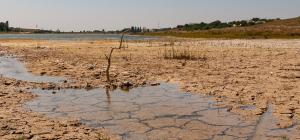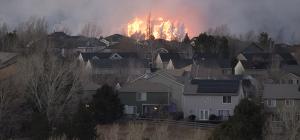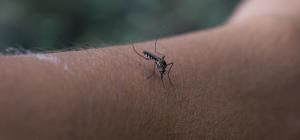Project, prepare, and protect: Using climate data and tools to understand future extreme heat
Gregory Richardson, Elly Fard, Elaine Barrow, Craig Brown
Abstract
Extreme heat events are increasing in Canada and are projected to continue to increase in the future, not only in intensity and duration, but also in geographic extent. Greater efforts to prepare for these events are therefore required as threats to individuals, communities and health systems from extreme heat increase with greater warming. Communities not currently exposed to extreme heat events may also become vulnerable to them in the future. To help public health authorities understand how vulnerability may change, this session will outline how the web portal, ClimateData.ca, can be used to explore projections for extreme heat. We will also introduce the new projections for humidex, and discuss the challenges of communicating future extreme heat risk. In addition, this interactive session will demonstrate climate data analysis tools, using specific community examples, to boost audience confidence in the use of climate data. This will help communities identify their vulnerability to extreme heat, support adaptation efforts and increase resilience in the future.
Speakers

Elaine Barrow has a PhD in Environmental Sciences and has over thirty years’ experience in climate change research. She started her career in the Climatic Research Unit, University of East Anglia (UK), moved to Canada in 1999, and then worked mainly as a consultant undertaking climate change research with a focus on the prairies. Elaine joined the Canadian Centre for Climate Services in 2019 and works mainly on the web portal, ClimateData.ca, but is also involved in the development and delivery of training materials to help decision-makers understand how to use climate information.

Elizabeth (Elly) Fard has been with the Training team at the CCCS for almost a year, working on fire weather information and a podcast series about applications for climate data. Elly joined the CCCS following a PhD at UCLA, where her research focused on the environmental reconstruction of California coastal marshes and best practices in adaptation management.

Craig Brown is a Senior Scientist, Climate Change and Health at Vancouver Coastal Health Authority where he supports climate change adaptation projects in the health sector, with a strong emphasis on community collaboration. Craig is also an associate faculty member at Royal Roads University in the School of Environment and Sustainability, and has served as an author on national and international climate change knowledge assessments, including the IPCC Sixth Assessment report.
Gregory Richardson MCIP, RPP is the A/Manager of the Extreme Heat Program within the Climate Change and Innovation Bureau at Health Canada (Government of Canada). The goal of the Extreme Heat Program is to protect the health of Canadians from extreme heat. Over the last ten years at Health Canada, Gregory has worked extensively with health officials and municipal staff across Canada with implementing actions to protect the health of Canadians from extreme heat. Gregory is also the author of various academic articles, book chapters and Government of Canada reports about climate change and cities.










